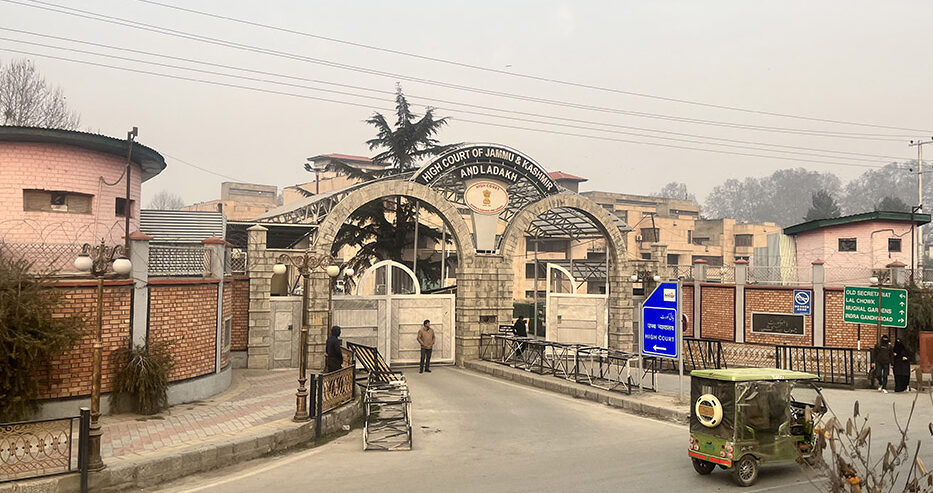SRINAGAR: In a landmark verdict, the Excessive Courtroom of Jammu and Kashmir and Ladakh has set a precedent, ruling that authorities authorities can’t dismiss an worker with out recording legitimate causes for bypassing a departmental inquiry. This important authorized growth stems from the case of Abdul Hamid Sheikh, a police officer who confronted termination with out due course of.
Sheikh, who served as a Private Safety Officer (PSO), was accused of getting connections with militants and planning to pilfer weapons from fellow PSOs to provide them to militants. Nonetheless, his dismissal in 2019 confronted problem as he contended that authorities did not observe correct process, denying him a good likelihood to defend himself.
The bench, comprising Justices Rajnesh Oswal and Moksha Khajuria Kazmi, emphasised the need for authorities to stick to authorized procedures, distinguishing between the “necessity” and “practicability” of holding an inquiry. The court docket underscored that authorities can solely bypass an inquiry after recording legitimate justification for its impracticability.
In Sheikh’s case, the court docket noticed a evident absence of recorded satisfaction by the competent authority relating to the impracticability of an inquiry. The dismissal order lacked needed point out of such impracticability, breaching constitutional provisions.
“The satisfaction to be recorded by the competent authority that holding of inquiry in all fairness not practicable as a consequence of some motive(s) is the constitutional obligation on the a part of the competent authority earlier than dismissing or eradicating or decreasing the delinquent worker,” the court docket remarked.
Highlighting the constitutional obligation on authorities to report satisfaction relating to the impracticability of an inquiry earlier than drastic actions, the court docket quashed Sheikh’s dismissal order as a consequence of procedural lapses. It directed authorities to reinstate Sheikh inside three months, emphasising the significance of adhering to authorized procedures in circumstances impacting public order and nationwide safety.
Whereas Sheikh’s reinstatement is remitted, the court docket clarified that respondents are free to provoke contemporary proceedings towards him following correct authorized procedures. This verdict underscores the safety of staff’ rights whereas making certain due course of and upholding the ideas of justice and equity in administrative actions.
In one other ruling, a Division Bench comprising Justices Rajneesh Oswal and Moksha Khajuria Kazmi upheld the dismissal of Manzoor Ahmed Bhat, an assistant accounts officer of the Sericulture Division. The bench refused to offer any reduction to Bhat, who was dismissed beneath 311(2)C of the Indian Structure. Bhat was among the many staff who was dismissed earlier than Jammu and Kashmir authorities misplaced Article 370 and its standing.
The appellant on August 5, 2016, was accused of anti-social and anti-national actions, pelting stones at police and CRPF personnel, leading to accidents. He was booked beneath varied sections of the RPC and violated conduct guidelines for presidency staff. Regardless of subsequent acquittal in FIR No.39 of 2016, the court docket upheld his dismissal beneath Article 311(2) of the Structure. The court docket cited an analogous case and emphasised that unblemished service report can’t outweigh misconduct threatening public order. The appellant’s dismissal was deemed justified, as his actions had been deemed unbecoming of a authorities worker. The enchantment was dismissed for lack of advantage.
#Excessive #Courtroom #Worker #Dismissal #Bypassing #Departmental #Inquiry
Kashmir Tourism
Kashmir News
Source Link



